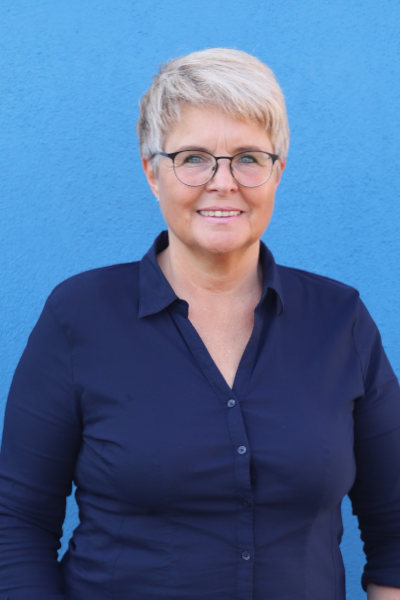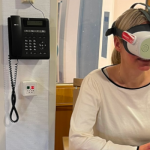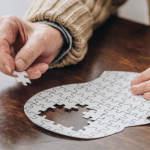When Mustafa and Heidi go for a walk, they both beam with joy. The Turkish neighbour and the resident are a perfect match. While the volunteer pushes the elderly lady in her wheelchair through the city, the two talk a lot. Through intercultural care, he improves his German and learns a lot about local customs. And Heidi is happy that someone is listening to her, that she can tell him about her life and learn something about a foreign culture.
Project launch ‘Intercultural Care’
This intergenerational cooperation was made possible by an intercultural project at the AWO Remeyerhof senior citizens‘ centre in Worms (north), which was funded by Glücksspirale over a period of three years. The aim was to achieve intercultural openness in the neighbourhood through a neighbourhood office attached to the senior citizens’ centre. The project was supplemented by a culturally sensitive care and support concept for optimised care for people with a migrant background. This is also intended to serve as a blueprint for other AWO homes. The project was led by Isabel Neubauer, who works as a volunteer and social space coordinator at the senior citizens‘ centre.
150 volunteers in three years
In the north of Worms, it is now well known that the staff at the neighbourhood office are open to the needs of the neighbourhood, more than 40 per cent of whom have foreign roots. While other care homes complain about a lack of volunteer work, more than 150 people have volunteered at the senior citizens‘ centre over the past three years, almost half of them with a migrant background.
Former student, now a doctor

‚Some do an internship with us, complete a voluntary social year or start training as nursing assistants and then go on to do a three-year general nursing course,‘ says Isabel Neubauer, describing the intercultural care provided. Or working in retirement home helpy them gain a foothold in a career elsewhere. At present, it is mainly poeple from Syria who are taking up voluntary work. A former student who improved his German through contct with the residents is now employed as a doctor in a general practice in Worms and now cares for the residents professionally. ‚Other refugees have also gained a foothold via the ‚care home detour‘ and completed training courses, for example as plant mechanics, or started their own businesses as tilers,‘ says Neubauer.
Employee workshops
But what does intercultural care mean in the everyday life of the AWO House of Generations? According to Isabel Neubauer, it means ‘paying more attention to details and biographies.’ Many locals now know that Muslims eat halal whenever possible, never eat pork, abstain from alcohol and fast during Ramadan. But paying attention to these things in the sometimes stressful everyday life of a care facility requires sensitivity and cultural knowledge. At the senior citizens‘ centre, two specialists from the AWO district office in Rhineland, who themselves have a migrant background, held two workshops to train employees from all areas:
care, social services, housekeeping, administration, building services and catering. The concerns and issues of the employees in the respective areas were addressed. The results are now being continuously processed in the respective teams.
Intercultural care – pay attention to the code
If you go into detail, you can find solutions. Among Muslims, for example, it is customary that only people of the same gender are cared for: men care for men and women care for women. The issue becomes more complicated when it comes to intimate shaving. In Islam, this is part of the Muslim code. In Germany, such shaving is not included in the standard of care. ‘Now that we are more familiar with people’s wishes and habits, we can talk to relatives and ask them if they want us to take this on,’ says Isabel Neubauer, suggesting a possible solution.
Tea parties and small gestures
Less personal, but all the more helpful, are small gestures such as sticking a dot in the corner of the room to indicate the direction of prayer towards Mecca. Or allowing residents to visit a mosque to break their fast – which also applies to employees at the AWO senior citizens‘ centre. Muslim men in particular enjoy sitting together over tea or coffee according to old customs, while their local co-residents play bingo next door. ‘We have found that these tea rounds are very popular with the men,’ says Neubauer. They tend to reject loud games in the German style.
Intercultural care – education helps
In the senior citizens‘ centre, it has now become standard practice for intercultural care to be a separate item on the agenda of all departmental team meetings. According to Neubauer, this open attitude permeates the entire facility. She has also observed that differences such as skin colour, large family visits or the wearing of headscarves are not an issue among residents or staff. And if they do, for example when new seniors move into the home, there is a way of dealing with it. ‘We talk to people about it,’ says Neubauer, instead of ignoring their reservations.


